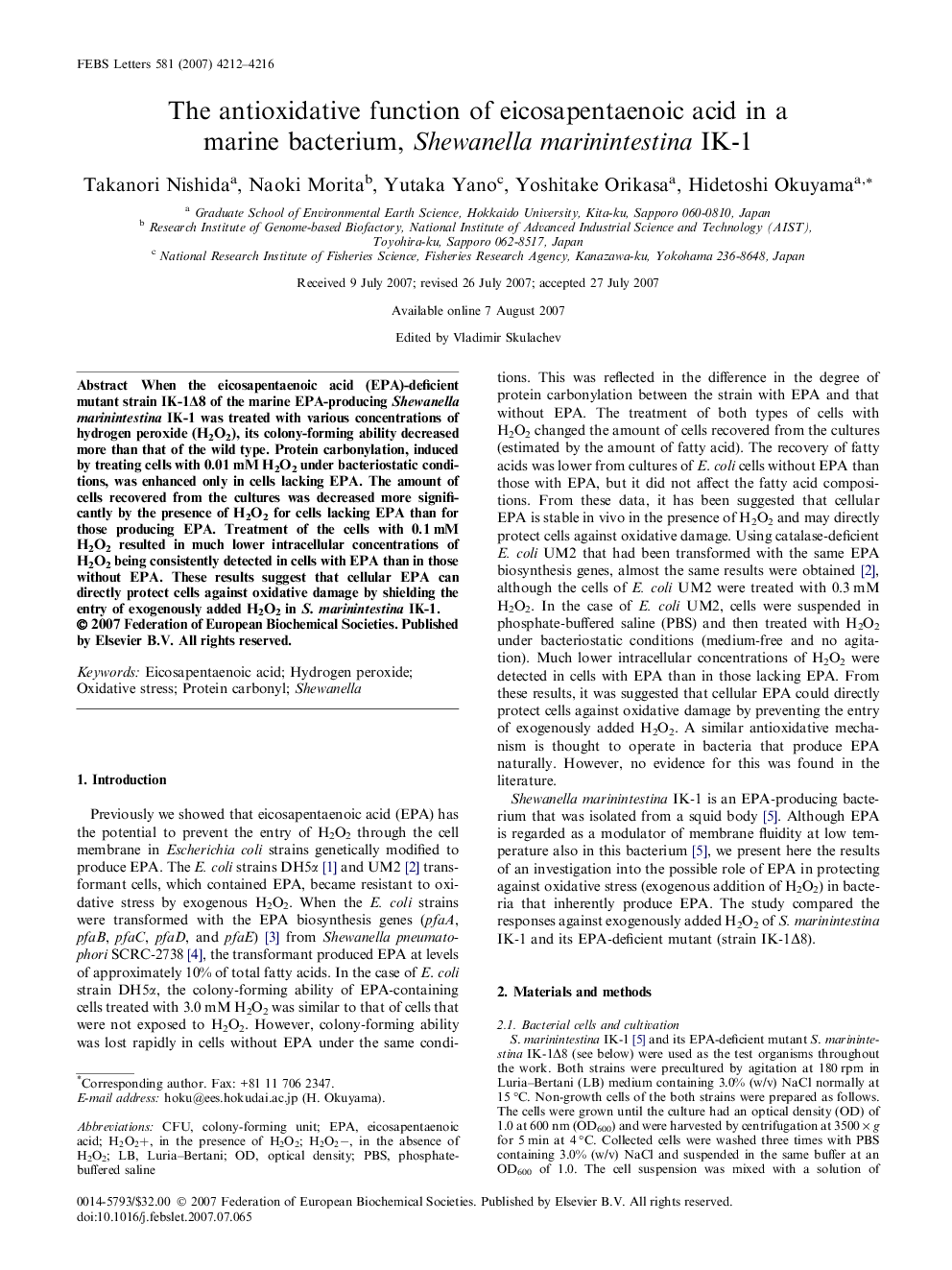| Article ID | Journal | Published Year | Pages | File Type |
|---|---|---|---|---|
| 10872399 | FEBS Letters | 2007 | 5 Pages |
Abstract
When the eicosapentaenoic acid (EPA)-deficient mutant strain IK-1Î8 of the marine EPA-producing Shewanella marinintestina IK-1 was treated with various concentrations of hydrogen peroxide (H2O2), its colony-forming ability decreased more than that of the wild type. Protein carbonylation, induced by treating cells with 0.01Â mM H2O2 under bacteriostatic conditions, was enhanced only in cells lacking EPA. The amount of cells recovered from the cultures was decreased more significantly by the presence of H2O2 for cells lacking EPA than for those producing EPA. Treatment of the cells with 0.1Â mM H2O2 resulted in much lower intracellular concentrations of H2O2 being consistently detected in cells with EPA than in those without EPA. These results suggest that cellular EPA can directly protect cells against oxidative damage by shielding the entry of exogenously added H2O2 in S. marinintestina IK-1.
Keywords
Related Topics
Life Sciences
Agricultural and Biological Sciences
Plant Science
Authors
Takanori Nishida, Naoki Morita, Yutaka Yano, Yoshitake Orikasa, Hidetoshi Okuyama,
